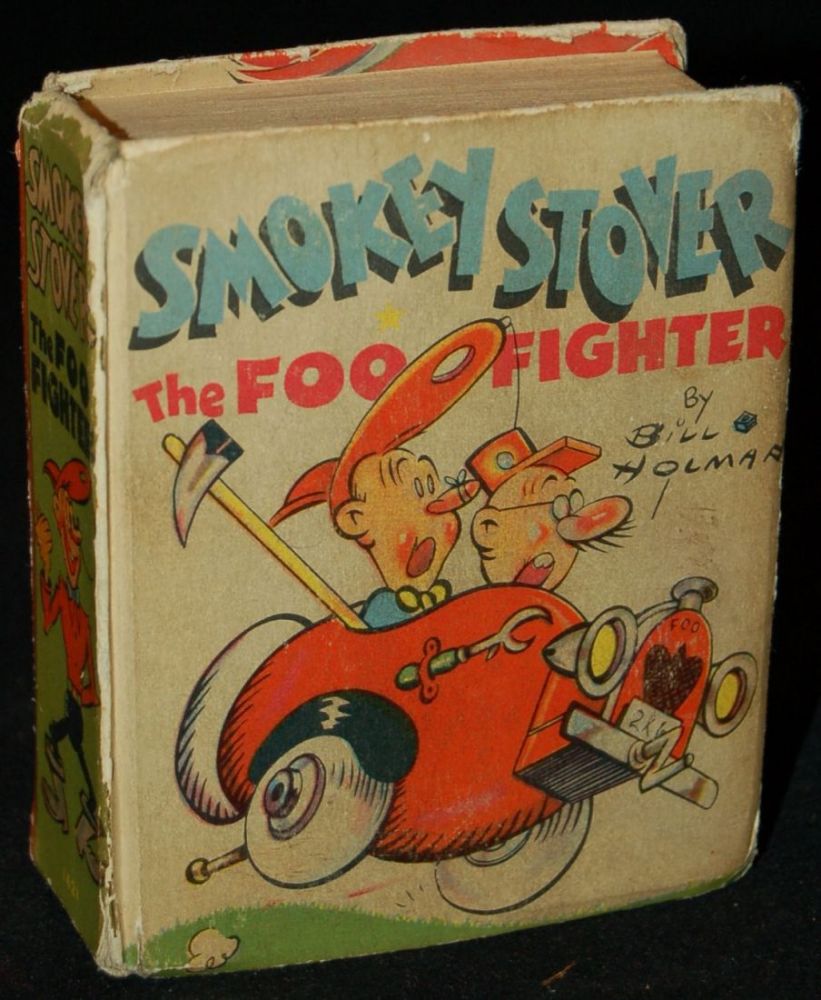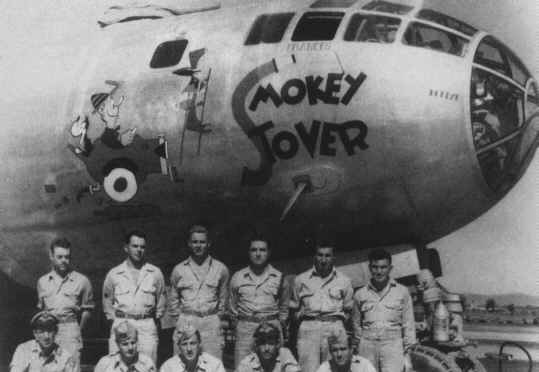 |
Smokey Stover - The Foolish Foo Fighter (1945) |
FOO-E-2-U
Smokey Stover, the Foolish Foo Fighter
 Odd
luminous aerial phenomena were sighted by military airmen on many occasions
during the Second World War. American night fighter pilots in Europe
dubbed these lights "Foo Fighters."
Odd
luminous aerial phenomena were sighted by military airmen on many occasions
during the Second World War. American night fighter pilots in Europe
dubbed these lights "Foo Fighters."
The name comes from the comic strip "Smokey Stover," the creation of cartoonist Bill Holman (1903-1987). Smokey, who first appeared in a Chicago newspaper in 1935, was a mixed-up fire fighter who wore his helmet backwards, worked with Cecil Sizzlebritches at the False Alarm Fire Company, and drove the Foomobile, an egg-shaped, two-wheeled car with the letters "FOO-E-2-U" on the license plate. The strip's humor was silly, pun-based, and very idiomatic American, as much a product of its times as the Marx Brothers, the Three Stooges and the music of Spike Jones.
"What this country needs is a good 5 cent Foo," reads a sign in one cartoon. In another, a framed picture hanging in the background shows a blacksmith, a horse, and the sun coming up over a ridge. Its caption is "Shod at Sunrise."
The comic shown above was published in "Big Little Book" style, with hard covers and over one hundred pages, but in a small, easily carried three-by-four inch format. Its gadget-oriented, lighthearted, Rube Goldberg-like humor may have appealed to young GIs.
 |
The first pilot known to have used the term "Foo Fighter" to describe a UFO-like nocturnal light was Lt. Donald J. Meiers of the US Army Air Force's 415th Night Fighter Squadron, who was a native of Chicago. As it's likely that he had seen the comic strip in his hometown newspaper, the probable origin of the phrase isn't so mysterious. Their many fruitless attempts to track nocturnal targets may have left the young pilots of the 415th feeling like Smokey Stover's "False Alarm Fire Company." The photo shows Meiers with his British-built Bristol Beaufighter night fighter
see Queen of the Midnight Skies: The Story of America's Forgotten Night Fighters, Garry R. Pape and Ronald C. Harrison |
